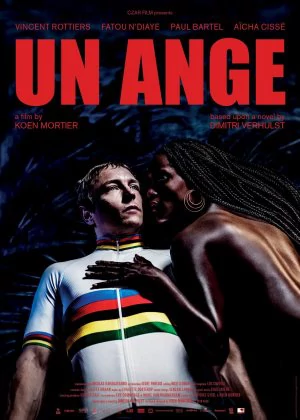Angel

Even though I'm a pretty big fan of Koen Mortier's two earlier films, it took me quite some time to catch up with his latest project. I had some doubts about the book Angel [Un Ange] is based on and while not entirely unfounded, it turns out Mortier's directorial skills easily made up for any reservations I had with the material. I do feel it's a slight step down from his other work, but if you loved his previous films just as much as I did, there's really no good reason to postpone watching this one. The qualities of Angel are beyond question and Mortier's usual traits are back in full force.
![screen capture of Angel [Un Ange]](/thumbs/img/articles/1200xauto/angel-1.webp)
The book (written by Dimitri Verhulst) tackles the final day in the life of an extremely gifted cyclist. The material is clearly based on the life of Frank Vandenbroucke, somewhat of a black sheep in professional cycling, but the story itself is mostly fictional, a narrative constructed from minor slivers of truth. While it's certainly not the first book or film to do so, these events are only a decade old and still shrouded in mystery. Knowing that many who see this film will consider them to be truth is something that doesn't sit well with me and still feels a little bothersome.
Luckily, there's more to Angel than just the semi-fictitious recount of a famous person's last day. When you manage to detach the film from its source, Mortier's film works both as an exploration of the destructive power of fame, as well as a magical romance between two people living in two very different worlds. Once I got to the point where I could see the film in that light, Angel became a lot more enjoyable, though I will say it did take me a good 30 minutes to get there. At least it means this film could grow when I decide to give it another go.
Thierry is a gifted cyclist, but a serious injury and private issues have kept him from reaching his full potential. To escape from all the pressure, he leaves for a short vacation in Senegal, together with his brother. When they're out exploring the city, Thierry runs into Fae, a Senegalese prostitute. He asks her to join him, which marks the start of a sizzling night. Thierry falls in love with Fae and asks her to marry him, an alluring proposal for a young black girl living in dire circumstances. When the two arrive back at Thierry's hotel, Fae isn't allowed in, which completely turns Thierry's mood.
![screen capture of Angel [Un Ange]](/thumbs/img/articles/1200xauto/angel-2.webp)
Mortier is a very visceral director, luckily there's no lack of great Belgian cinematographers who can deliver a gritty and brooding visuals. Nicolas Karakatsanis has been making a name for himself this past decade, Angel is just another reminder that he's one of the best and brightest in the business right now. Dark, deep and warm colors, stark contrasts, camera work that feels dynamic and polished at the same time and inventive camera angles. Every shot, every scene feels deliberately styled. Coupled with the sharp editing skills of Leunen, it creates an impressive, immersive visual experience.
The soundtrack is the perfect companion to the visuals. I hadn't really heard of Soulsavers before, but their particular brand of downtempo electronic (mixed with various other influences) works wonders here. Stylish, demanding and somewhat ethereal music that highlight the emotions of the characters perfectly. Mortier doesn't seem to be giving preference to either visuals or score, instead looking for ideal ways to combine the two. This creates a very tight, often overwhelming atmosphere that carries the film through the many non-narrative moments.
For a more mood-based drama like Angel, the performances need to be on point too. While the audiovisual elements do take over part of the actors' job, there are many moments when they have to take the lead without the usual crutches helping them out (i.e. plot and dialogue). Both Rottiers and N'Diaye deliver perfect performances, going through a stream of complex emotions in a very short span of time, while keeping their relationship and emotions clear and believable for the audience. The rest of the cast is also on point, but the two leads are the primary focus of the film.
![screen capture of Angel [Un Ange]](/thumbs/img/articles/1200xauto/angel-3.webp)
Angel is a pretty slow and contemplative film. The characters can be a little elusive, scenes don't always have an immediate narrative function and there's a precarious balance between the darker and the more ethereal elements that won't be for everyone. But in the end, I think it all comes down to whether you can immerse yourself in the brooding drama Mortier concocted. Though I struggled with the content during the first half hour, it was relatively simple to leave all of that behind and simply enjoy the film once I got a good feel for the film itself.
This is a film for fans of arthouse cinema, who aren't afraid of mixing things up with minor yet unmistakable genre influences. Mortier delivers a mysterious, entrancing film that draws a lot of strength from its audiovisual qualities, but ultimately works because of the complex and captivating relationship between the two leads. This past decade Mortier has proven himself to be one of the leading directors of the Belgian film industry, so I'm happy he's already started work on his next project. For now though, make sure you don't miss out on Angel.